The second half of the field season was even richer in artifacts than the beginning. Gunflints and buttons continued to be found throughout the excavation.
Trade silver is commonly found on British fur trade sites in the Great Lakes, but has not been common at Michilimackinac. That changed

this summer when we found a triangular pendant, cone and brooch.
Two intact brass trade rings with glass “paste” sets were found.


In past seasons at this house we have found two jaw harps so small

only a child could have played them. Most of the leisure-related artifacts we find, such as gaming pieces and dice, are more adult-oriented, so undisputedly children’s toys are a notable find. We know that Charles and Marie Gonneville, the French inhabitants of this house in the 1740s and 1750s, had two sons, one of whom died as an infant. We still do not know who the British trader living in this house in the 1760s and 1770s was or anything about his family. Whether this belonged to the surviving Gonneville son, the British trader’s child, or was a trade item is impossible to know.

Another pattern we have noticed over our ten seasons of excavation at this house is the wide variety of ceramics present. This year we found a fragment of Whieldon-type ceramic with a vegetable motif.
The root cellar continued to yield larger artifacts, likely tossed in

during the demolition of the house. The most recent was a 7.25” long knife blade. It is the same shape as a modern butcher knife.

While many of these artifacts came from the root cellar or deposit from under the house floorboards, the 1781 demolition rubble continued to yield interesting items as well. The most unusual one this season was a complete brass crucifix. It was 1.5” tall and 1” wide. The cross depicts the crucified body of Christ, with the letters INRI above and a skull below.
In the first half of the season, we found the stains from two interior joists or walls. In August, we found the burned posts from a better defined interior wall. It appears that this house had a more complicated layout than a simple one room house, but exactly what it was is not yet clear. We still have to open an area 10 feet wide and 25 feet long along the north side of the house.

The site has been lined with plastic and bales of straw for the winter. Now we are working in the lab, cleaning, sorting, counting and identifying all of the artifacts we found this season.









